Background
Francis Harry Hinsley was born on November 26, 1918, in Walsall, United Kingdom to the family of a wagoner Thomas Henry Hinsley and school caretaker Emma Adey.


In 1937 Hinsley won a scholarship to St John's College, Cambridge, to read history. A talented student he found himself interviewed by Alastair Denniston, the head of the Government Code and Cypher School (GCCS) in July 1939. He was recruited the same year before graduating. Harry Hinsley earned his Master of Arts at St. John's College in 1946.
After attending the local elementary school Harry Hinsley went to Queen Mary's Grammar School.
In 1937 Hinsley won a scholarship to St John's College, Cambridge, to read history. A talented student he found himself interviewed by Alastair Denniston, the head of the Government Code and Cypher School (GCCS) in July 1939. He was recruited the same year before graduating. Harry Hinsley earned his Master of Arts at St. John's College in 1946.
Photograph of British cryptoanalysts Harry Hinsley, Sir Edward Travis, and John Tiltman
Most Excellent Order of the British Empire, United Kingdom
Harry Hinsley at work at Bletchley Park.






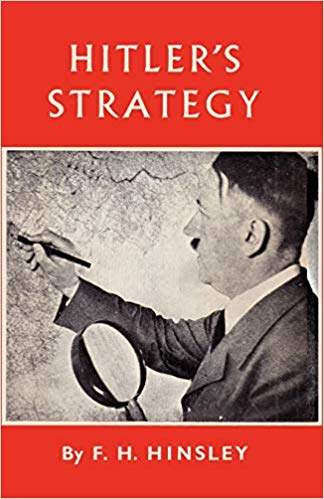
(Here, with full documentary evidence, is the unfolding of...)
Here, with full documentary evidence, is the unfolding of the problem which kept all the world awake in the long years of war, the story of Hitler's own lonely intentions; what he thought he was achieving in invading Norway, in preparing for (and never implementing) the invasion of England, in making a partner of Mussolini, in seeking to win Franco, and Gibraltar, in attacking Russia. It is a drama of gradually increasing inevitability of defeat for an overriding man whose fatality was himself. The book depends for its existence upon the capture of the complete naval archives.
https://www.amazon.com/Hitlers-Strategy-Francis-Harry-Hinsley/dp/4871879208/?tag=2022091-20
1951
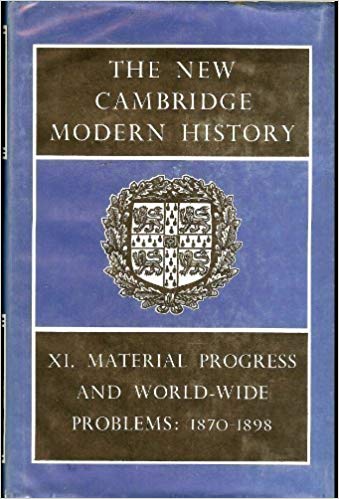
(Volume XI covers a period of contrasts in European and Wo...)
Volume XI covers a period of contrasts in European and World history, of material expansion and economic depression, of improved conditions and widespread poverty and degradation, a period of armed peace. The text of the volume, first published in 1962, is reprinted unchanged.
https://www.amazon.com/New-Cambridge-Modern-History-Vol/dp/0521045495/?tag=2022091-20
1962
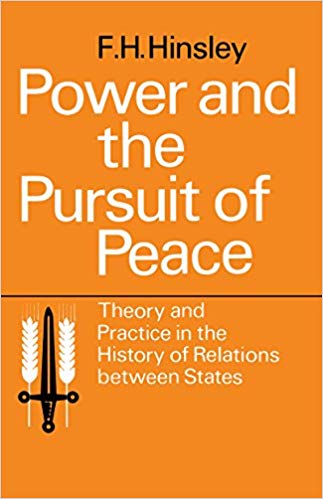
(In the last years of the nineteenth-century peace, propos...)
In the last years of the nineteenth-century peace, proposals were first stimulated by fear of the danger of war rather than in consequence of its outbreak. In this study of the nature and history of international relations, Mr. Hinsley presents his conclusions about the causes of war and the development of men's efforts to avoid it. In the first part, he examines international theories from the end of the middle ages to the establishment of the League of Nations in their historical setting.
https://www.amazon.com/gp/product/B01CEKQ09S/?tag=2022091-20
1967
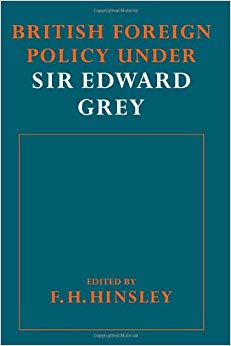
(Until 1970 it would have been premature to attempt a comp...)
Until 1970 it would have been premature to attempt a comprehensive and impartial account of British foreign policy from 1905 to 1916, during the secretaryship of Sir Edward Grey. Apart from the difficulty of passing judgment on matters that were still controversial, the confidential archives of the British government for the years after 1905 did not begin to become available until the 1950s.
https://www.amazon.com/British-Foreigh-Policy-under-Edward/dp/0521090156/?tag=2022091-20
1977

(The volume covers the period 1941 - 1943. As with all the...)
The volume covers the period 1941 - 1943. As with all the official histories it is extraordinarily detailed and the basis of many, many books on WWII. If you are seriously interested in the history of World War II this is a must have book.
https://www.amazon.com/British-Intelligence-Second-Official-Histories-ebook/dp/B01I89W2FU/?tag=2022091-20
1981
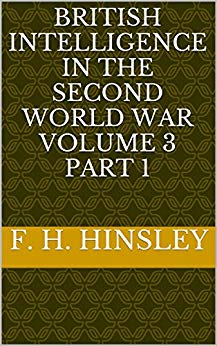
(British Intelligence in the Second World War provides the...)
British Intelligence in the Second World War provides the only reliable account yet published of the key role played by British Intelligence in Allied strategy and operations in the Second World War. No such account could have been written without the unrestricted access that was afforded to Professor Hinsley and his colleagues to the full range of British government intelligence records and to political and military archives of the war and the interwar years.
https://www.amazon.com/BRITISH-INTELLIGENCE-SECOND-WORLD-PART-ebook/dp/B0134S3OSY/?tag=2022091-20
1984
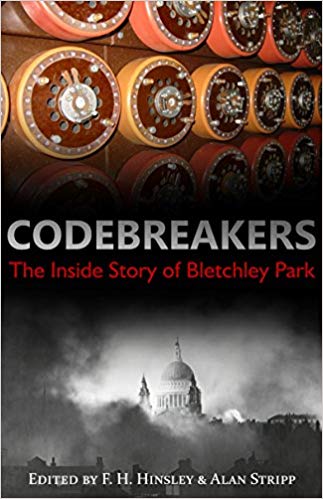
(This is a colourful and authentic account of daily life a...)
This is a colourful and authentic account of daily life and work at Government Communications Headquarters, Bletchley Park, the most successful intelligence agency in history. By 1942 the codebreakers of Bletchley Park and its out-stations were breaking some 4,000 German signals a day, and almost as many from Italy and Japan, eavesdropping on enemy communications up to the highest levels of command.
https://www.amazon.com/Codebreakers-Inside-Story-Bletchley-Park-ebook/dp/B0133R56OG/?tag=2022091-20
1993
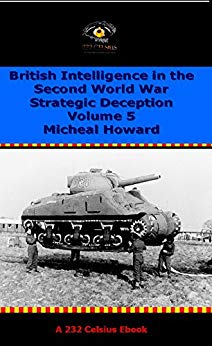
(The story of allied deception plans in World War 2 from r...)
The story of allied deception plans in World War 2 from rubber tanks and FUSAG to operation Mincemeat. Extraordinary, unequaled detail found nowhere else. Essential reading for anyone interested in the second world war.
https://www.amazon.com/British-Intelligence-World-War-Vol-ebook/dp/B01CNXQ1GS/?tag=2022091-20
1993
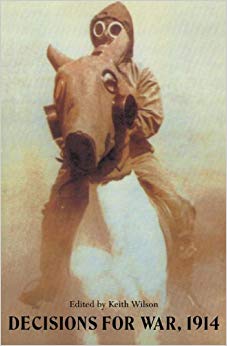
(This authoritative and comprehensive collection of essays...)
This authoritative and comprehensive collection of essays examines the weeks of crisis management that led to the outbreak of world war in August 1914. Written from the perspective of each of the initial combatants (including Japan and the Ottoman Empire), the book provides an unrivaled analysis of the process of decision-making at the highest level in those critical weeks.
https://www.amazon.com/Decisions-War-1914-F-H-Hinsley/dp/1857280989/?tag=2022091-20
1995
historian author cryptanalyst edicator
Francis Harry Hinsley was born on November 26, 1918, in Walsall, United Kingdom to the family of a wagoner Thomas Henry Hinsley and school caretaker Emma Adey.
After attending the local elementary school, Harry Hinsley went to Queen Mary's Grammar School. In 1937 Hinsley won a scholarship to St John's College, Cambridge, to read history. A talented student he found himself interviewed by Alastair Denniston, the head of the Government Code and Cypher School (GCCS) in July 1939. He was recruited the same year before graduating. Harry Hinsley earned his Master of Arts at St. John's College in 1946.
Harry Hinsley was an undergraduate at St. John's in 1939 when the British Foreign Office recruited him for its code-breaking headquarters at Bletchley Park. He became involved with what became known as "traffic analysis". This was defined as looking at all the evidence relating to enciphered messages which could not be read and reaching a conclusion on what the enemy was doing.
The experience of those days Hinsley later recorded in Codebreakers: the inside story of Bletchley Park, the volume he edited with Alan Stripp in 1993, whilst the achievements of "BP", since they were chronicled by him as editor-in-chief of the monumental British Intelligence in the Second World War (1979-90), and the contribution to the Allies' military operations provided by the breaking of the Enigma cipher, are now common knowledge.
At the end of the Second World War, Hinsley returned to St John's College, Cambridge, where he taught history. He also published Power and the Pursuit of Peace (1963) and Sovereignty (1966). In 1969 he became a professor of the history of international relations and served for 35 years as a research fellow, tutor, and lecturer in history and for 10 more years as the Master of St. John's College. He was elected a fellow of the British Academy in 1985. He retired in 1989 but remained active at the university almost to the last.
Frederick Winterbotham, who had worked at Government Code and Cypher School during the war, approached the government and asked for permission to reveal the secrets of the work done at Bletchley Park. The intelligence services reluctantly agreed and Winterbotham's book, The Ultra Secret, was published in 1974. Permission was now given to Francis Harry Hinsley, to publish his five-volume British Intelligence in the Second World War (1979-1990). He also published Codebreakers: the Inside Story of Bletchley Park (1993), which served to add the flesh and blood excluded from the official account.
Sir Francis Harry Hinsley died of lung cancer at Addenbrooke's Hospital in Cambridge, on 16th February 1998. He was cremated, and his family buried the ashes privately in Cambridge.
Harry Hinsley played a significant role within a remarkable intelligence effort that was made by the specially recruited group of scholars at Bletchley Park during World War II. He was awarded the Order of the British Empire in 1946 for wartime service in the Foreign Office and was knighted by Queen Elizabeth II in 1985.
Hinsley is also renowned as a historian and educator who wrote widely on the history of international relations and British Intelligence during the Second World War.
(Here, with full documentary evidence, is the unfolding of...)
1951(Volume XI covers a period of contrasts in European and Wo...)
1962(British Intelligence in the Second World War provides the...)
1984(Until 1970 it would have been premature to attempt a comp...)
1977(This is a colourful and authentic account of daily life a...)
1993(In the last years of the nineteenth-century peace, propos...)
1967(This authoritative and comprehensive collection of essays...)
1995(The story of allied deception plans in World War 2 from r...)
1993(The volume covers the period 1941 - 1943. As with all the...)
1981Hinsley was a strikingly rich character, almost a phenomenon of nature, in contrast to his bespectacled and physically slight appearance. He had a strong analytical skill so honed at Bletchley Park.
Quotes from others about the person
"A slight, bespectacled young man with wavy hair. I can remember quite well showing Harry some of the sorting and how delighted he seemed when he began to recognise the different types of signals. If I was in difficulty, I knew I could go to Harry. It was a pleasure because he was always interested in everything and took great pains to find out what it was and why. Those were very enjoyable days indeed. we were all very happy and cheerful, working in close cooperation with each other." - Phoebe Senyard, Hinsley's first chief at Bletchley Park.
"His powers as an interpreter of decrypts were unrivalled and were based on an ability to sense that something unusual was afoot from the tiniest clues. Hinsley became the leading expert on the decryption and analysis of German wireless traffic, and, particularly after the capture of German Enigma code machines and materials, which allowed their settings to be broken, played a vital role in supplying the Admiralty with crucial intelligence analysis derived from Admiral Doenitz's signals." - Richard Langhorne, Hinsley's biographer.
"He was a great teacher, an important writer, and a notably competent administrator. Countless generations of undergraduate historians at Cambridge remembered the extraordinarily vivid way in which he taught them, but the research school in the history of international relations that he established in the 1960s and 1970s was one of his greatest achievements." - Richard Langhorne, Hinsley's biographer.
On April 6, 1946, Harry Hinsley married Hilary Brett-Smith, a graduate from Somerville College, Oxford, who had also worked at Bletchley Park, in Hut 8. They had two sons, Charles and Hugh, and a daughter, Clarissa.
